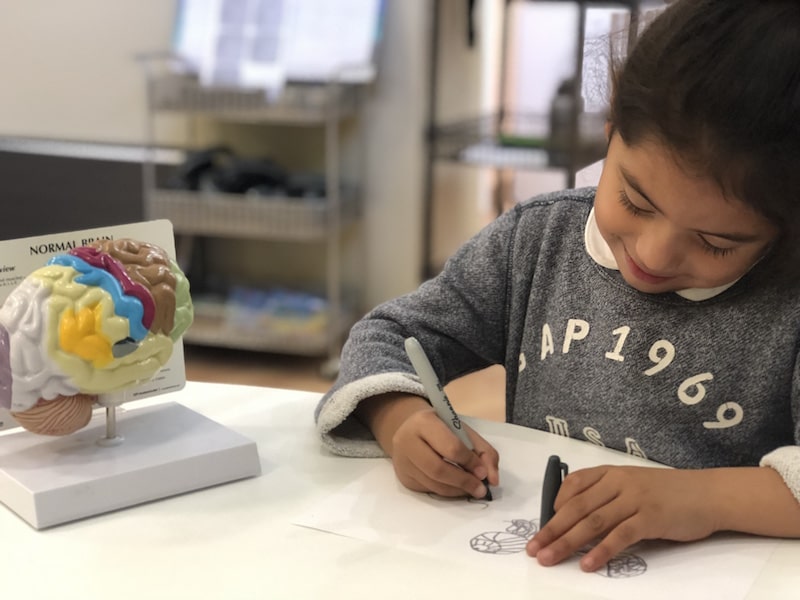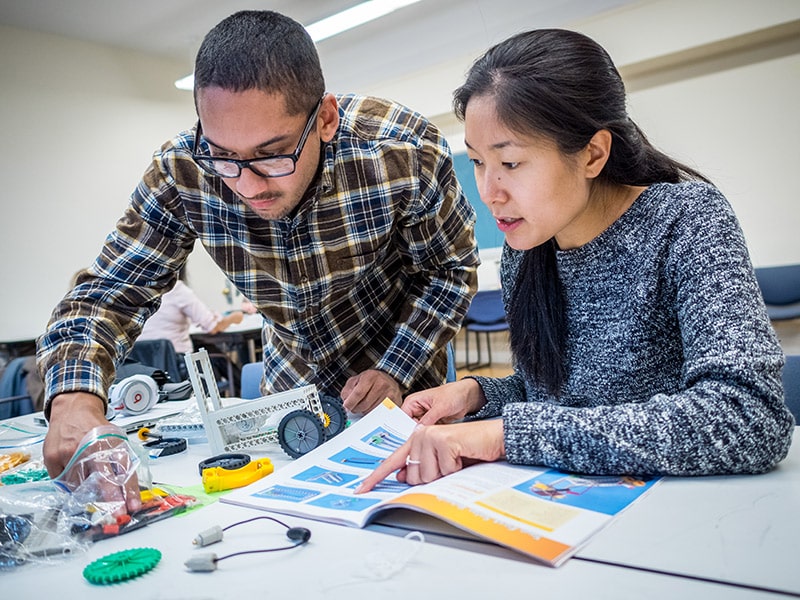The Dewey method. Democracy and Education

Dewey stated that the student is an active subject, and that it is the teacher’s task to generate stimulating environments to develop and guide this capacity to act. In this way, it is the teacher who must connect the contents of the curriculum with the interests of the students.
He or she also understood that knowledge cannot be imposed from outside or transmitted in a repetitive manner, given that in this blind imposition the student loses the possibility of understanding the processes that allowed for the construction of such knowledge.
Dewey defined EDUCATION as an instrument of social transformation and a fundamental method of progress where the teacher, by teaching, not only educates individuals, but also contributes to forming a just social life.
Thus, John Dewey’s criticism of the traditional school gave rise to the proposal of a new way of doing things, of a new method that was based on experience and action and whose purpose was to form citizens who were fit to live in a democracy.
The “Dewey school” or “lab school”
Dewey will carry out an experimental school project in the context of the University of Chicago. His school, made up of teachers specially trained according to the principles of his pedagogy, put into practice his ideas regarding the necessary interaction between theory and practice in the teaching and learning processes.
The challenge of this school was, according to Dewey, “to discover in the administration and selection of subjects the methods of learning, teaching, and discipline. How a school could become a cooperative community while developing in individuals their own capacities and meeting their own needs”.
In this school the children developed, divided into classes by age, tasks linked to the world of production and practice, which he called “occupations”. The quest was for students to have the possibility of experimenting with concrete work and production situations, having to resort to curricular knowledge whenever necessary to solve problems.
Dewey never loses sight of the fact that school content is nothing more than the result of a long process during which humanity has had to solve different problems.
Moreover, in this project Dewey was able to carry out his proposal to articulate school and democracy, a fundamental theme of his developments in pedagogy. His proposal consisted -in a synthetic way- in turning schools into miniature societies, which could sustain positive aspects of adult life by leaving out routine and imitative elements.
The school becomes, in this way, the main motor of social and individual progress. Dewey said that in school, the ideal should be the reconciliation of individual and collective interests.
For most of his life, Dewey was deeply optimistic about the transformative role of systematic education.

The Dewey method
From an epistemological point of view, Dewey considers that the concepts in which beliefs are formulated are merely provisional human constructions, since they have an instrumental function and are related to action and adaptation to the environment.
Dewey criticizes the classical approach to knowledge and contrasts it with his experimental and scientific perspective.
The main element that relates to Dewey’s theory of knowledge, and probably the most important in his entire philosophy, is the concept of experience.
Dewey proposes a dynamic vision of the concept of experience: for him experience is an exchange between the living being and its physical and social environment and not merely a matter of knowledge. Experience for Dewey is based on connections and continuities and involves processes of reflection and inference; experience and thought are two terms that are linked.
Dewey criticized industrial society, but he remained enormously distant from Marxism. He criticizes industrial society because it reduces people to a state of passive acquiescence with regard to external routines and this is the opposite attitude to that which should promote democracy, which is the position he defends.
This author says that democracy is not only an institutional issue but a way of life associated with it that is built with the active collaboration of all. This implies a moral ideal that links the construction of democracy with the ethical dimension. People must be able to intelligently determine their objectives while participating freely and on an equal footing in the realization of a common issue.
Therefore, talking about Dewey’s philosophical assumptions and talking about his pedagogical proposal becomes almost the same thing.
Pedagogical concepts
Dewey was deeply interested in reforming educational theory and practice. He contrasted his educational principles in the experimental laboratory school, called the Dewey School, established at the University of Chicago in 1896.
The educational principles proposed learning through different kinds of activities rather than through established curricular content and opposed authoritarian methods. Dewey thought that what was offered by the educational system of his time did not provide citizens with adequate preparation for life in a democratic society.
He further believed that education should not be merely a preparation for future life, but should provide and make full sense of its very development and fulfillment. His work and writings significantly influenced the profound changes in American pedagogy in the early 20th century, as manifested in the shift in emphasis from the institutional and bureaucratized to the personal reality of the student.
He criticized the education that emphasized both the relaxed fun of students and keeping them entertained, as well as the exclusive orientation towards the professional world.
